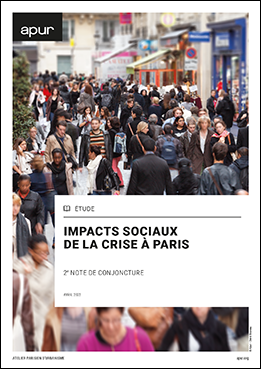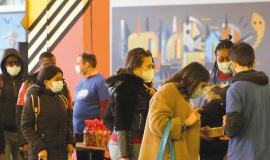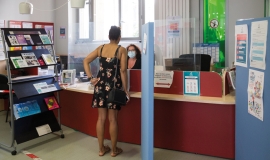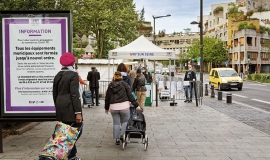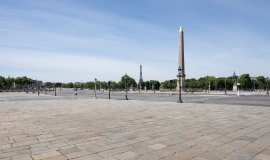Following on from the first note published in October 2021, this second study looks back at the social, economic, social work-related developments observed in Paris during 2021.
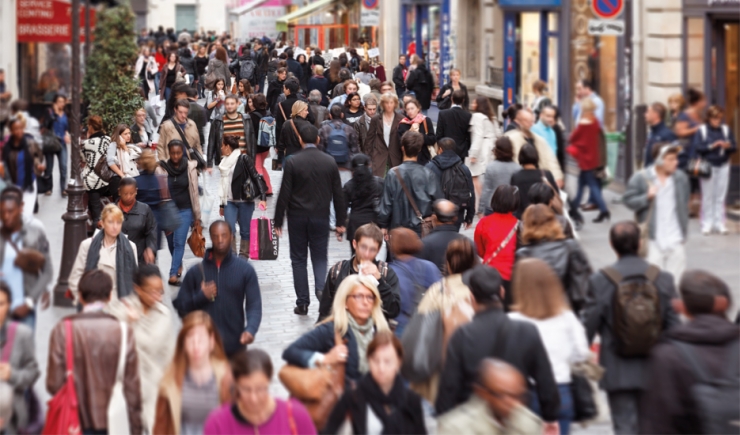
A partnership approach to observing the social impacts of the crisis in Paris was initiated at the beginning of 2021 with the aim of analysing, foreseeing the coordinating solutions in the social field within the area of Paris.
Several quantitive and qualitative tools have been used, among which a statistical overview grouping together a selection of indicators chosen from a dozen various sources, semi-directive interviews conducted and the self-administration of a questionnaire given to social players in contact with the public.
By cross-referencing the analyses, this second note on the situation shows:
- A stronger economic impact of the health crisis in Paris than in Ile-de-France and France in 2020, with however, a more dynamic economic recovery in Paris in 2021.
- Social effects which were on the whole restrained although there were signs of weakness to be examined in greater depth (education / parenthood, housing / unpaid housing particularly in the private stock, budget / inflation, health / withdrawal from treatment, etc.).
- Changes in social work practices and the acceleration of dematerialisation.
- The saturation of the social services and facilities and a lassitude which was especially felt in 2021 following the management of the acute crisis in 2020.
- Social effects which concern mostly sectors of the population already in precarious circumstances (jobseekers, precarious workers, etc.), rather than new emerging sectors (with the exception of the self-employed, short-term contract workers, professionals retraining),
- A need for monitoring over a long period of time that cross references (qualitative feedback, observation of practices, statistical and activity monitoring).

